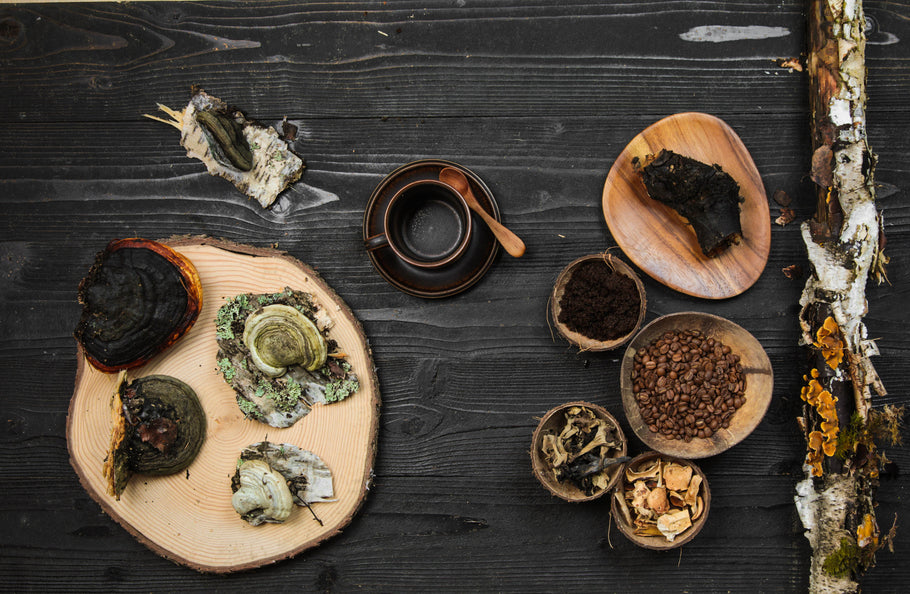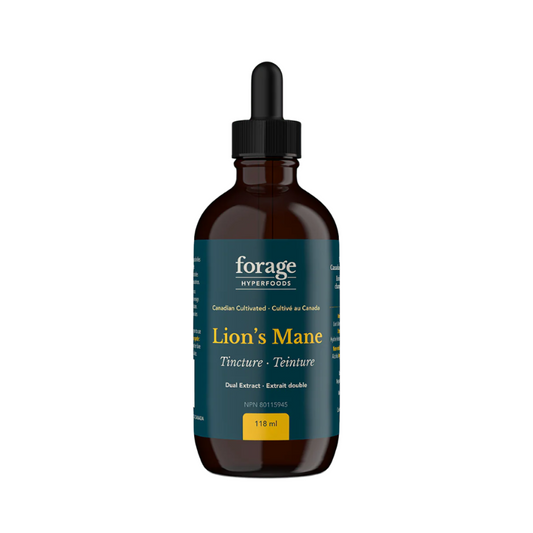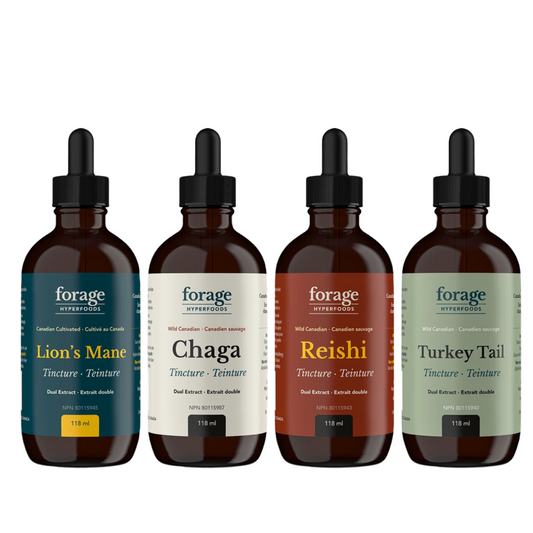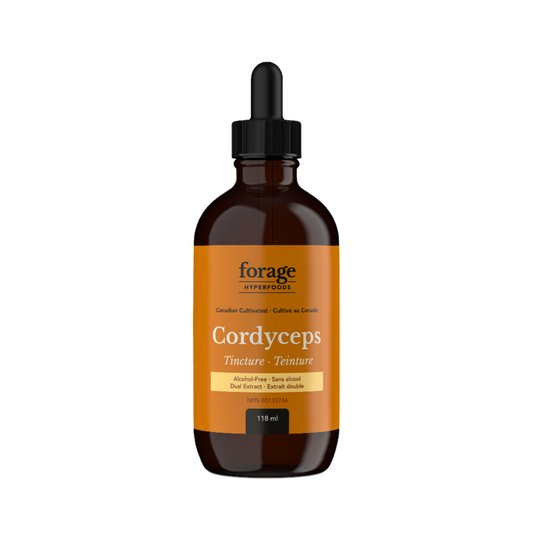
The Differences Between Chaga and Other Mushrooms
Share
Functional mushrooms have been a part of human holistic health for centuries, but there are a few main varieties gaining mainstream popularity as of late. Today we’re going to focus on the main differences between Chaga and three other well-known medicinal mushrooms: Reishi, Turkey Tail, and Lion's Mane. While all of these mushrooms share one thing in common—their ability to support the immune system—each of them has its own unique claim to fame. How do you know which one to pick? What’s the difference between Chaga vs Reishi or Chaga vs Lion's Mane? Let’s get into it.
Chaga vs Reishi
Chaga and Reishi are both immunomodulators and offer anti-inflammatory effects, however, Chaga is one of the most antioxidant-rich superfoods in existence due to its high content of polyphenols like betulin and melanin, and a variety of polysaccharides. In other words, Chaga is brimming with rare medicinal constituents that can support your immune system in a way that no other mushroom can.
Additionally, both mushrooms have shown anti-cancer potential, however, Reishi has been more studied in this regard. One study looking at 4,000 breast cancer survivors discovered that nearly 60 percent of them took Reishi herbal supplements during their treatment. Reishi also shows promise for colorectal cancer and prostate cancer.
Compared to Chaga, Reishi may be more effective in its ability to reduce fatigue, anxiety, and depression.
Try our Reishi Mushroom Tincture here.
Chaga vs Turkey Tail
Chaga is very unique in the functional fungi realm because it’s actually not technically a mushroom. It’s a sterile conk made up of birch wood and the mycelium (root system) of Chaga. Some of the active compounds responsible for the incredible health benefits of Chaga are a direct result of the fact that it grows on, and of, birch trees. The medicinal benefit of Chaga is due in part to the absorption and conversion of compounds found in the birch wood. This is why wild-harvested Chaga offers far more nutritional value than Chaga cultivated from an artificial or grain-based substrate.
Unlike Chaga’s dark conks, the fruiting body of Turkey Tail grows horizontally on decaying wood with a striped, ruffle shaped fruiting body that resembles (you guessed it) a Turkey Tail. Like Chaga, Turkey Tail is well-known for its immune-boosting properties, also rich in antioxidants. Turkey Tail’s unique claim to fame, however, is a compound called polysaccharide-K (PSK) which is an officially recognized treatment for cancer patients in Japan, improving the survival rate of people living with certain cancers, and improving the immune system of those receiving chemotherapy.
You can get excellent quality Turkey Tail tincture here.
Chaga vs Cordyceps
Chaga is the go-to mushroom for boosting immunity, reducing inflammation, and soothing digestion. Because Chaga gains some of its “superpowers” from its parasitic relationship with the birch tree, it must be wild-harvested to reap all of its benefits.
Traditional Cordyceps (Cordyceps sinensis) on the other hand, is extremely rare and expensive (costing up to $20,000 per kg) and grows on bugs high up on the Tibetan plateau. Thankfully, there is another species of Cordyceps (Cordyceps militaris) that can be cultivated, which is what’s used in most Cordyceps mushroom supplements today. The cultivated version has a very similar profile to the traditional species, except it’s actually much higher in a powerful health-boosting compound called cordycepin. Cordyceps is known as the “energy mushroom” and is typically used for—you guessed it—supporting energy and endurance.
Chaga vs Lion’s Mane
As we’ve already discussed, Chaga should be your number one pick for supporting your immune system, aiding in digestion, and reducing inflammation.
While Lion's Mane also offers immune-boosting effects (although not at the same level as Chaga), this mushroom is known for brain support. It’s been shown to support cognitive function, mental clarity, and mood. It’s even been shown to regenerate nerves.
Find our premium quality Lion's Mane Tincture here.
Find a trusted source for your Chaga
Purchasing Chaga mushroom from a trusted supplier is the best way to ensure its effectiveness and safety. Not all Chaga products are created equal so be sure you’re getting yours from a company whose Chaga is organically grown, sustainably harvested, carefully extracted, and tested for quality and contaminants, such as heavy metals, pesticides, microbial contamination, and gluten. If a Chaga supplement lists any ingredients like “mycelium on grain” or other funky fillers, it's best to avoid it. To reap the full potential of this fungal powerhouse, seek a Chaga extract that uses wild-harvested Chaga.
Check out wild harvested Canadian Chaga tincture here.
The takeaway
Functional mushrooms are so fascinating and impactful because they each offer unique benefits. Which mushrooms you choose to try really depends on the effects you’re seeking. Interestingly, medicinal mushrooms have a synergistic effect, meaning the beneficial compounds in each fungus support each other inside your body. While Chaga will always be number one in our book, the more mushrooms the merrier!



